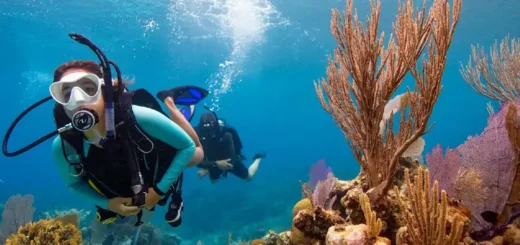What You Need to Know About Diving in New Zealand
When it comes to diving, New Zealand is a world-renowned destination. With its clear waters, diverse marine life and incredible landscapes, it’s no wonder that people come from all over the world to experience the country’s underwater wonders.
If you’re thinking of diving in New Zealand, there are a few things you need to know. In this blog post, we’ll cover everything from the best time to go diving, to what kind of equipment you’ll need.
When to Go Diving in New Zealand
One of the great things about diving in New Zealand is that the diving season is relatively long, running from November to April. However, the best time to go diving will depend on what you want to see.
If you’re interested in seeing whale sharks, manta rays or other pelagic species, the best time to go diving is between November and February. This is when these animals are most commonly seen around the country.
If you want to see more of the smaller critters, such as nudibranchs and octopus, then March and April are the best months to go diving. This is when the water temperatures are at their warmest and visibility is at its best.
What Equipment You’ll Need
When it comes to diving equipment, you’ll need a few key items. Firstly, you’ll need a wetsuit. The water temperature in New Zealand ranges from 18-24 degrees Celsius, so a 3mm wetsuit should be sufficient.
You’ll also need a dive mask, fins, snorkel and regulator. If you don’t have your own equipment, don’t worry – most dive centres will be able to provide you with everything you need.
Finally, you may want to invest in a dive computer. This is not essential, but it is a useful piece of equipment that will help you to plan your dives and track your progress.
Dive Sites in New Zealand
New Zealand is home to some of the best dive sites in the world. Here are just a few of the many incredible places you can explore:
The Poor Knights Islands – These islands off the coast of Northland are home to an incredible array of marine life, including over 100 species of fish.
– These islands off the coast of Northland are home to an incredible array of marine life, including over 100 species of fish. Cathedral Cove – This world-famous dive site is located on the Coromandel Peninsula. It gets its name from the huge archway that you swim through during the dive.
– This world-famous dive site is located on the Coromandel Peninsula. It gets its name from the huge archway that you swim through during the dive. The Red Sea – This popular dive site is located in the Fiordland National Park. It’s known for its red-tinged waters, which are caused by sediment in the fiord.
– This popular dive site is located in the Fiordland National Park. It’s known for its red-tinged waters, which are caused by sediment in the fiord. The Rainbow Warrior – This shipwreck is one of the most popular dive sites in New Zealand. It was sunk by French government agents in 1985 and now lies in 30 metres of water.
– This shipwreck is one of the most popular dive sites in New Zealand. It was sunk by French government agents in 1985 and now lies in 30 metres of water. Goat Island – This marine reserve is located just north of Auckland and is a great place to see a variety of marine life, including seals, stingrays and turtles.
Diving Safety in New Zealand
New Zealand is a very safe place to dive. However, there are a few things you need to be aware of before you dive.
Firstly, it’s important to check the weather forecast before you dive. This is because the conditions can change very quickly, and you need to be aware of any potential hazards.
Secondly, you should always dive with a buddy. This is someone who you can rely on in an emergency, and who will help you to stay safe while you’re diving.
Finally, it’s important to be aware of the risks of diving. These include decompression sickness, nitrogen narcosis and ear barotrauma. If you’re unsure about any of these risks, make sure to speak to your dive instructor before you dive.
Diving in New Zealand is an incredible experience that everyone should try at least once. With its clear waters, diverse marine life and stunning landscapes, it’s easy to see why.
So, if you’re thinking of diving in New Zealand, make sure to keep the above information in mind. And, most importantly, have fun!




